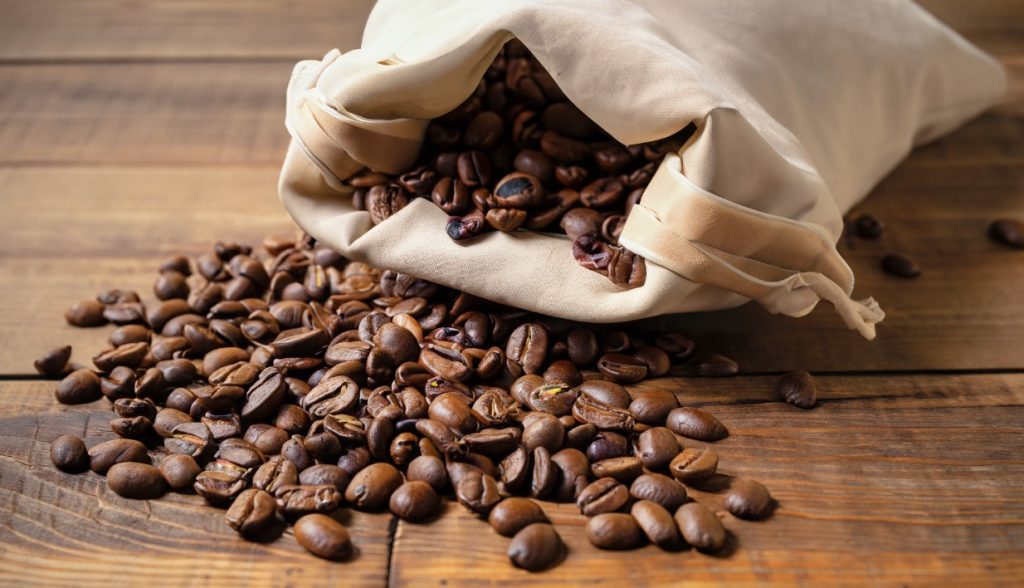Coffee bags are a convenient and simple way to enjoy a delicious cup of coffee without any hassle or mess. They are similar to tea bags, but they contain roasted and ground coffee instead of tea leaves. You just need to boil some water, steep the coffee bag for a few minutes, and enjoy your brew.
But how do you choose the best coffee bags among the many options available in the market? What are the factors that affect the quality, taste, and sustainability of coffee bags? In this article, we will answer these questions and help you find the best coffee bags for your needs.

What are the benefits of coffee bags?
Coffee bags have several advantages over other methods of making coffee, such as:
- Convenience: Coffee bags are easy to use and require no equipment or cleanup. You can make a cup of coffee anytime and anywhere, as long as you have access to hot water and a mug.
- Freshness: Coffee bags are individually wrapped in sachets that preserve the freshness and aroma of the coffee. Unlike instant coffee, which is made from freeze-dried or spray-dried coffee crystals, coffee bags contain real ground coffee that has been roasted and ground shortly before packaging.
- Variety: Coffee bags come in different roasts, origins, and flavors, so you can choose the one that suits your preference and mood. You can also experiment with different brewing times and water temperatures to adjust the strength and taste of your coffee.
- Sustainability: Coffee bags are more eco-friendly than coffee pods or capsules, which generate a lot of plastic waste. Many coffee bags are made from biodegradable or compostable materials, such as paper, cornstarch, or plant-based fabrics. Some coffee bags also use organic or fair-trade coffee beans, which support ethical and environmental practices in the coffee industry.
What are the drawbacks of coffee bags?
Coffee bags are not perfect, however, and they also have some limitations, such as:
- Cost: Coffee bags are more expensive than buying whole beans or ground coffee in bulk. Depending on the brand and quality, a single coffee bag can cost anywhere from 10p to 50p, while a 250g bag of ground coffee can cost around £3 to £5.
- Consistency: Coffee bags may not produce consistent results every time, as the extraction process depends on various factors, such as the size and shape of the bag, the amount and grind size of the coffee, the water temperature and volume, and the steeping time. Some coffee bags may also leak or burst during brewing, resulting in a bitter or watery cup.
- Customization: Coffee bags offer less control and flexibility than other methods of making coffee, such as using a French press or an espresso machine. You cannot adjust the grind size, water pressure, or extraction time of your coffee bag, which may affect the flavor and quality of your brew.
How to choose the best coffee bags?
To choose the best coffee bags for your needs, you should consider the following factors:
- Roast level: The roast level of the coffee beans affects their color, flavor, and caffeine content. Generally speaking, lighter roasts have more acidity and fruity notes, while darker roasts have more bitterness and smoky notes. Lighter roasts also tend to have more caffeine than darker roasts. You should choose the roast level that matches your taste buds and energy needs.
- Origin: The origin of the coffee beans refers to the country or region where they were grown. Different origins have different characteristics in terms of climate, soil, altitude, processing methods, and culture. These factors influence the flavor profile and quality of the coffee beans. For example, African coffees tend to be more floral and fruity, while Latin American coffees tend to be more nutty and chocolatey. You should choose the origin that appeals to your palate and curiosity.
- Flavor: The flavor of the coffee bag depends not only on the roast level and origin of the beans but also on any additional ingredients or flavorings that may be added to them. Some coffee bags may contain spices, herbs, nuts, fruits, or other natural or artificial flavors to enhance or complement their taste. You should choose the flavor that suits your mood and preference.
-
Sustainability: The sustainability of the coffee bag refers to how it impacts the environment and society. Some factors that affect sustainability include:
- The material of the bag: Some bags are made from biodegradable or compostable materials, such as paper, cornstarch, or plant-based fabrics. These bags are better for the environment than plastic or nylon bags, which may take hundreds of years to decompose.
- The packaging of the bag: Some bags are individually wrapped in recyclable or compostable sachets, while others are packed in bulk in resealable pouches. The former may offer more freshness and convenience, while the latter may reduce waste and cost.
- The source of the beans: Some bags use organic or fair-trade coffee beans, which are grown without harmful pesticides or fertilizers and support fair wages and working conditions for the farmers and workers. These bags are better for the society than conventional coffee beans, which may involve exploitation or environmental degradation.
You should choose the coffee bag that aligns with your values and beliefs.
What are some of the best coffee bags in the market?
Based on our research and testing, here are some of the best coffee bags in the market:
- Best quality coffee bags: Raw Bean Coffee1, £4.99 (10 bags). These coffee bags contain 100% Arabica beans from Colombia, Ethiopia, and Brazil. They have a smooth and balanced flavor with notes of caramel, chocolate, and citrus. They are also organic and fair-trade certified, and come in biodegradable bags and recyclable sachets.
- Best ethical coffee bags: Heaped Coffee2, £9.50 (14 bags). These coffee bags contain 100% Arabica beans from Peru, Honduras, and Rwanda. They have a rich and complex flavor with notes of nuts, berries, and honey. They are also organic and fair-trade certified, and come in compostable bags and sachets. For every bag sold, Heaped Coffee donates a portion of their profits to charity.
- Best versatile coffee bags: Taylors of Harrogate, £23.60 (80 bags). These coffee bags contain a blend of Arabica and Robusta beans from various origins. They have a medium roast level and a full-bodied flavor with notes of malt, nuts, and spice. They are suitable for any occasion and time of day, and come in recyclable bags and sachets.
- Best decaf coffee bags: Paddy & Scott’s Brew Bags, £18.99 (31 bags). These coffee bags contain 100% Arabica beans from Colombia that have been decaffeinated using the Swiss water process, which preserves the flavor and aroma of the beans without using any chemicals. They have a light roast level and a smooth and sweet flavor with notes of caramel, vanilla, and almond. They come in biodegradable bags and recyclable sachets.
- Best for fast steeping time: New Kings Coffee, £9.99 (16 bags). These coffee bags contain 100% Arabica beans from various origins that have been ground to a fine size for faster extraction. They have four different roast levels and flavors to choose from: light roast with fruity notes, medium roast with nutty notes, dark roast with chocolatey notes, and decaf with caramel notes. They are also organic and fair-trade certified, and come in compostable bags and sachets.
Conclusion
Coffee bags are a great way to enjoy a quick and easy brew without compromising on quality or taste. They offer convenience, freshness, variety, and sustainability in a simple package. However, not all coffee bags are created equal, and you should consider factors such as roast level, origin, flavor, and sustainability when choosing the best coffee bags for your needs.
